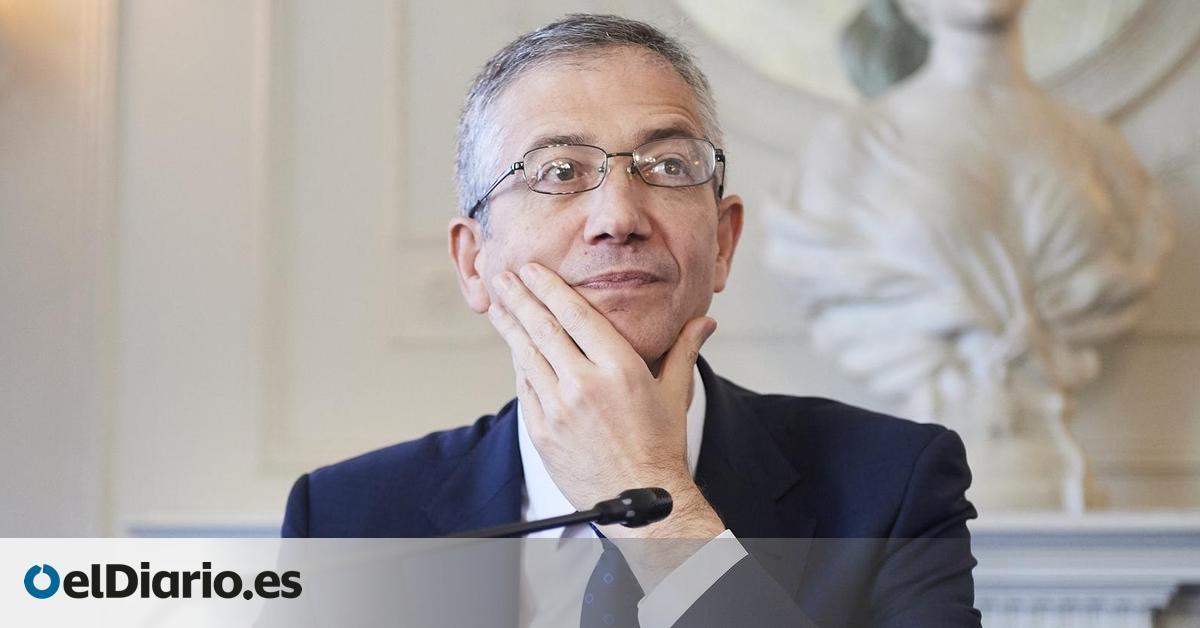
Banks have doubled the money they charge families to sign a mortgage in just two years. The Bank of Spain calculates a historic rise in the cost of new loans to purchase a home from the minimum of 1.4% in 2021 to 3.7% in April, on average.
The “emergency bonus” for the mortgaged faces the left
Further
“Since the beginning of 2022, the credit institutions of our country have been transferring in a sustained manner the increase in interest rates [del Banco Central Europeo (BCE), que se reflejan directamente en el euríbor] those of new loans granted to households. This translation has been accentuated since the middle of last year and affects all types of loans”, sums up the Bank of Spain in its latest report on the financial situation of households and companies.
The cost of new loans for consumption (to buy a car or an appliance) is close to 8%, from 6% in 2021. This increase in financing costs is also being suffered by businessmen, both due to lower consumption, as well as the greatest difficulties in obtaining credit.
This is the ECB’s strategy to stifle the economy and thus fight against inflation. And it entails, effectively, stifling the ability of families to buy and companies to invest and create jobs. The position of the central bank and the main international institutions defend that a contraction in economic activity is preferable, even if it entails a recession or job destruction, than persistent price rises.
The consequences of this strategy are already wreaking havoc, especially among families. And, in its report, the Bank of Spain notes that the demand for mortgages and other loans has sunk to 2020 lows, in the midst of a pandemic. On the other hand, the institution’s own calculations show that income from family deposits in financial institutions has hardly increased and only reaches 0.1% or 0.2% of gross disposable income, on average.
The great beneficiary of the increases in rates and the Euribor is the bank. Interest income from entities in our country shot up 43% between January and March, compared to the first quarter of 2022. Banks already warned in 2022 with the start of interest rate hikes by the ECB that the true impact on their accounts would arrive in 2023. And that is how it is being done.
Even the president of the institution, Christine Lagarde, has admitted this, who acknowledged a few weeks ago that, “until now, the tightening of financing conditions has not been at the expense of the banks’ business, since the positive impact of interest rates The higher interest margins of the entities outweighed the negative impact of the lower volumes [la caída de los importes y del número de préstamos que se firman]”. The growing profits of the banks favored the creation by the Government of a special tax in 2022.
On the other hand, in response to the damage caused by the ECB’s interest rate increases, mainly for those mortgaged at variable interest rates, the political parties are making different proposals for the general elections on July 23. From the “emergency bonus” of 1,000 euros from Sumar. Going through the extension of the payment term of the PSOE loans. Until the creation of a rescue fund that the Popular Party (PP) has raised.
Family savings grow again
The Bank of Spain also stops at another trend. As inflation in Spain has moderated, even below 2% in June, thanks to cheaper electricity and fuel (partly due to measures such as the cap on gas), families are recovering some purchasing power, after months and months suffering the ‘bite’ of price increases.
This relief due to the drop in inflation, and the lower consumption due to the increase in the cost of mortgages and loans in general are encouraging families to save again. To the point that the savings rate once again exceeds the average of recent years. Of course, on average, because the number of vulnerable households has risen in this price crisis.
Source: www.eldiario.es

